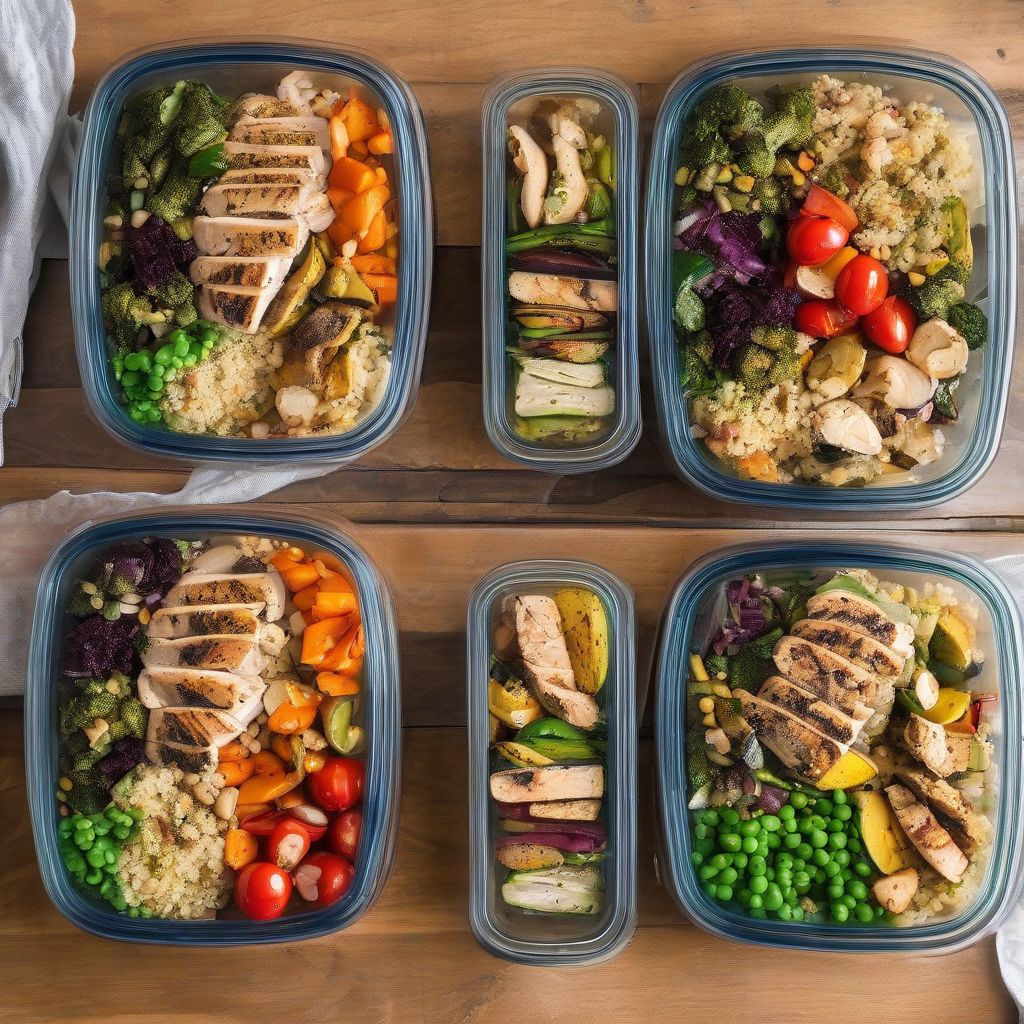We’ve all heard the saying, “You are what you eat.” While it might not be literally true, there’s no denying the powerful impact food has on our physical and mental well-being. Adopting healthy eating habits isn’t about restriction or dieting; it’s about nourishing your body with the nutrients it needs to thrive. As a certified nutritionist and meal prep coach, I’ve spent years helping people transform their relationship with food, and I’m here to share my insights on how you can make healthy eating a sustainable part of your life.
Understanding the Importance of Healthy Eating Habits
Before we dive into specific tips, let’s understand why healthy eating habits are so crucial. It’s not just about fitting into your favorite jeans, although that’s certainly a welcome bonus. Healthy eating contributes to:
1. Increased Energy Levels: Food is fuel. When you consume a balanced diet rich in fruits, vegetables, lean proteins, and whole grains, you provide your body with the energy it needs to power through your day. Say goodbye to those afternoon slumps and hello to sustained energy!
2. Improved Mood and Cognitive Function: The food you eat directly impacts your brain health. Nutrients like omega-3 fatty acids, found in fatty fish and walnuts, and antioxidants, abundant in colorful fruits and vegetables, support cognitive function and can even play a role in mood regulation.
3. Weight Management: While healthy eating isn’t solely about weight loss, making conscious food choices can help you maintain a healthy weight. By focusing on nutrient-dense foods, you’ll feel more satisfied and less likely to overeat.
4. Reduced Risk of Chronic Diseases: Perhaps one of the most compelling reasons to adopt healthy eating habits is the role it plays in disease prevention. A balanced diet can lower your risk of developing chronic conditions such as heart disease, type 2 diabetes, and certain types of cancer.
Building a Foundation: Key Principles of Healthy Eating
Now that you understand the “why” let’s explore the “how.” These foundational principles will guide you toward a sustainable and enjoyable way of eating:
1. Variety is Key
Think of your plate as a rainbow! Aim to include a variety of colorful fruits and vegetables in your diet. Each color represents different vitamins, minerals, and antioxidants that work synergistically to keep you healthy.
2. Prioritize Whole Foods
Whole foods are those that are minimally processed and as close to their natural state as possible. Think fruits, vegetables, whole grains, legumes, nuts, and seeds. These foods are packed with nutrients and fiber, which aids in digestion and keeps you feeling full and satisfied.
3. Hydrate Wisely
Water is essential for countless bodily functions. Aim to drink plenty of water throughout the day, and limit sugary beverages like soda and juice, which can contribute to weight gain and other health problems.
4. Mindful Eating
In our fast-paced world, it’s easy to eat on autopilot. However, practicing mindful eating can transform your relationship with food. Pay attention to your hunger and fullness cues, savor each bite, and eat without distractions.
5. Listen to Your Body
Everyone is different, and what works for one person may not work for another. Pay attention to how different foods make you feel, both physically and mentally. Experiment with different dietary approaches, and don’t be afraid to seek guidance from a registered dietitian or nutritionist.
Practical Tips for Implementing Healthy Eating Habits
Here are some actionable tips to help you put these principles into practice:
-
Meal Prep: Dedicate some time each week to plan and prep your meals. This will make healthy choices more convenient throughout the week. Check out my article on how to create a healthy meal plan for more tips!
-
Cook More at Home: When you cook at home, you control the ingredients and can ensure you’re using fresh, wholesome foods.
-
Make Gradual Changes: Overhauling your diet overnight is rarely sustainable. Start by making small, manageable changes, like adding an extra serving of vegetables to your plate or swapping sugary drinks for water.
-
Read Food Labels: Don’t be fooled by clever marketing! Learn to read food labels carefully, paying attention to serving sizes, added sugars, and unhealthy fats.
-
Don’t Deprive Yourself: Healthy eating should be enjoyable, not restrictive. Allow yourself occasional treats and indulgences in moderation.
 Healthy Meal Prep
Healthy Meal Prep
Overcoming Obstacles to Healthy Eating
Let’s face it, life can get in the way of even the best intentions. Here are some common obstacles you might encounter and how to overcome them:
-
Time Constraints: “I don’t have time to cook healthy meals!” This is a frequent concern, but healthy eating doesn’t have to be time-consuming. Utilize meal prepping, choose quick and easy recipes, or consider using a meal kit service.
-
Social Situations: Dining out or attending social events can pose challenges. Plan ahead by checking menus online or suggesting restaurants with healthy options.
-
Cravings: We all experience cravings, and that’s perfectly normal! Instead of viewing cravings as the enemy, try finding healthier alternatives to satisfy them. For example, if you’re craving something sweet, reach for a piece of fruit or a small square of dark chocolate.
-
Lack of Motivation: Staying motivated can be tough. Set realistic goals, track your progress, and find an accountability partner or support system to keep you on track. Remember, small changes add up to big results over time.
Conclusion
Embracing healthy eating habits is a journey, not a destination. It’s about making conscious choices that nourish your body and mind, leading to a healthier, happier you. Remember to focus on whole foods, stay hydrated, practice mindful eating, and listen to your body’s unique needs.
Don’t get discouraged by setbacks; we all have them. Celebrate your successes, no matter how small, and keep moving forward. If you need guidance or support along the way, don’t hesitate to reach out to a qualified healthcare professional or a registered dietitian.
Now, I’d love to hear from you! What are some of your favorite healthy eating tips or recipes? Share your thoughts and experiences in the comments below!
[amazon bestseller=”healthy cookbooks”]
